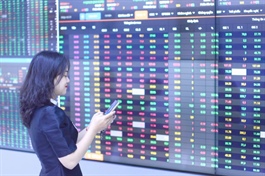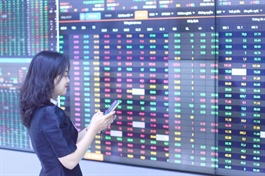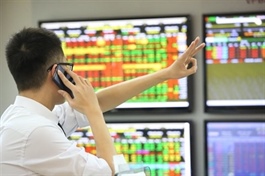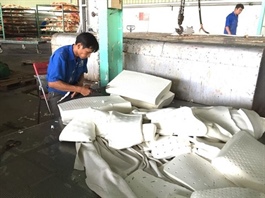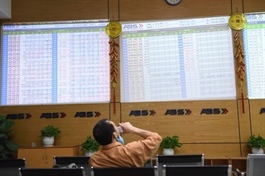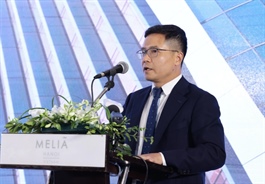Shift to advanced trading a crucial step for stock market
Shift to advanced trading a crucial step for stock market
Many investment funds believe that Vietnam’s stock market is advancing its trading mechanisms and settlement cycles to align with more developed markets, enhancing its competitiveness and appeal.

In an outlook report last week, BIDV Securities Company (BSC) presented several scenarios for Vietnam’s stock market in the second half of 2024, offering insights based on experience of neighbouring markets.
BSC outlined three potential outcomes for the VN-Index in 2024: a negative scenario with the VN-Index approaching 1,200 points, a positive scenario targeting 1,425 points, and a base scenario at 1,298 points, which is considered the most probable.
BSC is optimistic about the upcoming introduction of the new KRX trading system, predicting it will significantly improve market liquidity and make high-volume trading sessions more common.
“The Vietnamese stock market has long anticipated the introduction of new products like day trading, pending stock sales, and short selling to boost market appeal and offer diverse options for investors,” BSC said. “The shift towards more advanced trading mechanisms is seen as a crucial step in enhancing market dynamics and investor engagement.”
In Asia, some developed markets have implemented intraday trading, while certain emerging markets remain cautious, noted BSC. “While developed markets in the region have embraced these mechanisms, emerging markets, including Vietnam, are proceeding more cautiously,” it said.
A leader at the Vietnam Securities Depository and Clearing Corporation (VSDC) stressed that shortening the securities settlement cycle requires coordinated efforts from all market participants, including payment banks and system enhancements.
“The current T+2 cycle in Vietnam aligns with international standards and was implemented ahead of some major regional markets like Japan, Thailand, and Singapore,” the VSDC representative said.
BSC highlighted that implementing day trading heavily relies on the tech infrastructure and regulatory stance of each country. For instance, Indonesia and Saudi Arabia, classified as emerging markets, have not yet allowed day trading. Conversely, markets such as South Korea, Hong Kong, Taiwan, the UAE, and Thailand have embraced it. However, applying day trading requires cautious, step-by-step implementation for selected stocks to mitigate risks from market volatility.
“It is essential to proceed carefully with day trading, ensuring a phased and selective approach to avoid risks during market fluctuations,” stated BSC. “Since 2020, regulators have upgraded infrastructure and revised regulations to align Vietnam’s stock market with international standards.”
In June, the Ministry of Finance announced efforts to resolve obstacles in the market upgrade process and update the KRX system. The State Securities Commission and market participants are actively addressing the pre-funding issue, which is seen as a critical hurdle.
The VSDC and its members are preparing the necessary conditions to implement a central counterparty model for the stock market, and BSC believes that deploying the new trading system will significantly enhance market liquidity, with billion-dollar trading sessions becoming common.
Meanwhile, the Lumen Vietnam Fund highlighted several key drivers expected to shape the market’s growth in the second half of 2024.
“A significant positive factor is the potential decrease in selling pressure from foreign investors,” the fund said. “As the US Federal Reserve considers lowering interest rates, emerging markets such Vietnam are anticipated to draw in renewed interest from foreign investors.”
The fund also noted that Vietnam’s upgrade to emerging market status by FTSE in September 2025 could further boost foreign investment inflows. “Regulatory changes, such as the removal of pre-payment requirements, are expected to enhance market accessibility,” it said.
Vietnam remains a compelling destination due to its strategic location and skilled workforce. Moreover, multinationals are increasingly diversifying supply chains from China to Vietnam. “The recent enhancements in diplomatic relations between Vietnam and the US, Japan, and Australia are strengthening Vietnam’s role in global trade,” the fund added.
Assessing the market outlook, the Pyn Elite Fund emphasised that stronger earnings from listed companies this year and moderate interest rates are positive indicators.
“As the year progresses, the fund suggests that the US dollar may begin to weaken. In such a scenario, the VND could appreciate, positively impacting market sentiment,” it said.
On the other hand, Vietnam Holding expects credit growth in 2024 to be around 13-15 per cent, and the government to continue easing monetary and fiscal policies in the second half of the year.




